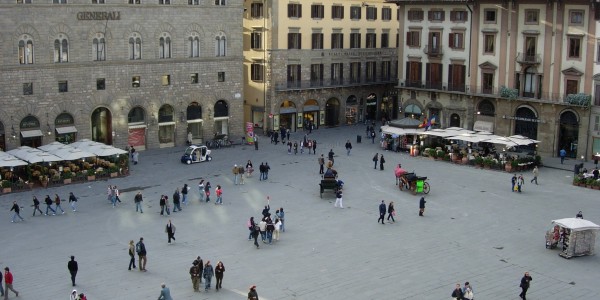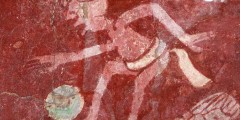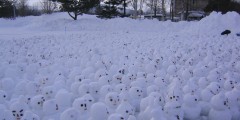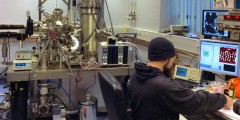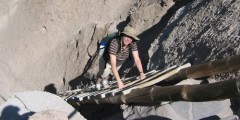Public, publics and citizen: What do these words mean?
June 23, 2013
Sciencewise has published a paper ‘Which Publics? When?’ by my Making Science Public colleagues Alison Mohr, Sujatha Raman and Beverley Gibbs, which has already provoked some blog responses. One blog by Sciencewise Executive Chair Roland Jackson has given it a very positive reception but mentions “a nagging feeling that this word ‘public’ is part of …
Extreme weather talk: Making climate public?
June 19, 2013
This is yet another in a series of blog posts where I try to show how one can use publicly available data (newspaper databases or Google Insight for Search) to observe patterns and shifts in public attention to climate change. Other posts have dealt with some first reflections on extreme weather, Hurricane Sandy, alarmism, carbon …
Making science in public: Kickstarters – promises and perils
June 15, 2013
A few weeks ago my son showed me a ‘new thing’ he had discovered online. It was a ‘kickstarter’ for a publishing project called ‘to be or not to be that is the adventure’. I thought it looked like good fun, especially since the creator is Ryan North whose Dinosaur Comics I sometimes read. A …
Mitigation, adaptation, geoengineering: Patterns of discourse, patterns of mystery
June 5, 2013
This blog relates more to an ESRC project on climate change than to the Leverhulme project on climate change and scepticism, but I think there is a tangential link. As part of the ESRC project, we are interested in finding patterns in climate change communication and policy over time and across countries. In that context …
Making science public is a snowclone
May 31, 2013
Recently Warren Pearce has been working on a paper in which he discusses the famous Bloomberg Businessweek front cover proclaiming “It’s global warming, stupid”. It was published on November 5, 2012, after Hurricane Sandy had hit New York. (The magazine bears the name of New York City Mayor Michael Bloomberg) This headline is obviously modelled …
Neo-liberalism: a problem of social science and for society
May 29, 2013
This is a post by JOHN HOLMWOOD, sparked by some discussions on twitter and on our ‘Making Science Public’ internal discussion list. A recent post by John Field has called neo-liberalism an ‘overworked concept’, much in use in the UK social science, but less frequently elsewhere. He implies that its use is largely normative, and …
Responsible innovation and close encounters of the third kind
May 27, 2013
Responsible (Research and) Innovation is gradually becoming a cornerstone of ‘making science (and technology)’ in Europe, intended to steer innovation to the ‘right’ impacts in an ethical and democratic way. When reading various chapters in a book on responsible innovation that has just been published by Richard Owen et al., I began to think that …
Bring on the Yawns: Time to Expose Science’s “Dirty Little Secret”
May 22, 2013
Guest post by visiting fellow, Jeff Tamblyn, film maker and director of Kansas vs. Darwin. As a visiting fellow in the “Making Science Public” project, I’ve had a great first week at the University of Nottingham, filled by conversations with social science scholars and capped off with the events of May Fest – a day in …
Science communication: Bridging theory and practice
May 21, 2013
On Friday 17 May 2013 I was at the Science Communication Conference 2013, organised by the British Science Association. I participated in a session on ‘Bridging theory and practice’ coordinated by Paul Manners, Director of the National Coordinating Centre for Public Engagement and Helen Featherstone, Project Manager (Public Engagement) for the CATALYST project at Exeter …
Debating empty chairs: creationism, climate and public engagement
May 17, 2013
This week, Making Science Public has been very proud to welcome US film director Jeff Tamblyn during his UK visit. On Wednesday we screened his amazing film, Kansas vs Darwin, a documentary charting the attempts by members of the Kansas School Board to introduce creationism and intelligent design into high school science teaching. The film …

